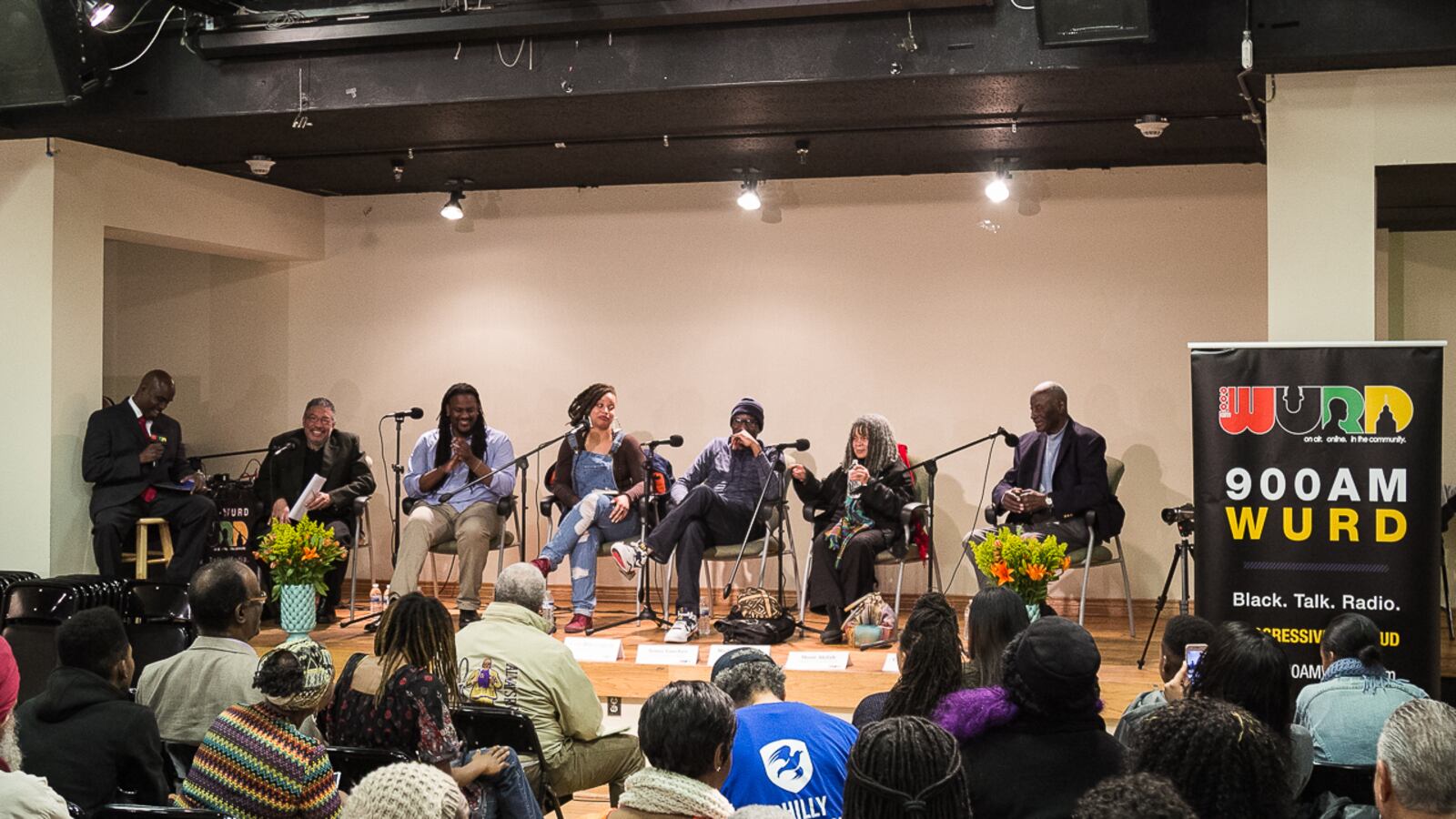This article was originally published in The Notebook. In August 2020, The Notebook became Chalkbeat Philadelphia.
The African American Museum in Center City hosted a panel of Black activists from different generations Thursday to discuss the past, present, and future of Black activism in the fight against racism.
Talk radio station WURD-AM (900) aired the discussion, which was moderated by Solomon Jones, an award-winning journalist and the host of Wake Up with WURD. The panel of guests had five members: Charles L. Blockson, a historian and author; Sonia Sanchez, a renowned poet, scholar, and activist; Linn Washington, an award-winning journalist and professor of journalism at Temple University; Asa Khalif, Black Lives Matter activist; Shani Akilah, creator of Black and Brown Workers Collective; and Michael O’Bryan, program manager of youth arts education at Village of Arts and Humanities.
The age range of the panelists spanned five decades, with Blockson, 83, and Akilah, 33, as the oldest and youngest in a discussion that bridged the gap between activism of the past and present.
Khalif said that he as an activist and other Black Lives Matter members "have included our elders into the mix, because we can’t do it without our elders. We need your love, your guidance, and your support.”
For much of the event, each panelist offered an insightful critique of the history of racial activism and strategies for current times. Topics like the election of Donald Trump, employment inequality, the myth of Black-on-Black crime, and the meaning of intersectionality — the idea of simultaneously living under multiple systems of oppression such as racism, sexism, etc. — were addressed, earning much applause from the audience.
Although activism regarding education in Philadelphia was not a focus of the panelists’ conversation, off stage, several members offered their insights into what’s needed to improve educational outcomes for Black students in the city.
O’Bryan said the challenges facing many of Philadelphia’s public school students are “ecological.”
He said that many Black students in the city are constantly under stress in and out of the classroom, and these conditions are exacerbated by unjust policies and underfunding. There needs to be a “political assault” on Harrisburg, he said, while local communities get organized and work as a collective on behalf of students.
“We as a Black community can attend to the very real things that are causing this ecological and biological harm and strain on children,” he said. “It’s going to take us wising up and thinking collectively in a group.”
O’Bryan added that the solution for many Black students in Philadelphia lies in a holistic approach, where local communities can correct issues like food insecurity and give students a chance to perform better academically.
Sanchez, a professor emeritus at Temple University, said that under the guidance of parents, students must become activists for their own education.
“We have got to get the parents to come back to the schools and begin to help organize the children,” said Sanchez.
“I’m correct when I say we’ve got to make the children seditious when it comes to education. … You must learn very much how to come together in the classroom to make the teachers teach you.”
Ismael Jimenez, a teacher of African American studies at Kensington Creative & Performing Arts High School, offered his students an unofficial field trip accompanying him to the event. Three of them decided to join him, and they left with plenty to think about.
“They took a lot from it,” Jimenez said. “That’s all I can ask as an educator, to put my students in a space so they can soak in the knowledge of the elders and up-and-coming activists nowadays. So, it’s just powerful.”
Jasir Arms, a student of Jimenez’s, said the event motivated him to become informed about the issues affecting the Black community.
“Tonight, it basically inspired me to go out and learn more about my community,” he said. “Because a lot of stuff they said, a lot of ideas they gave out, I didn’t fully understand. So, it just inspired me to get educated.”


